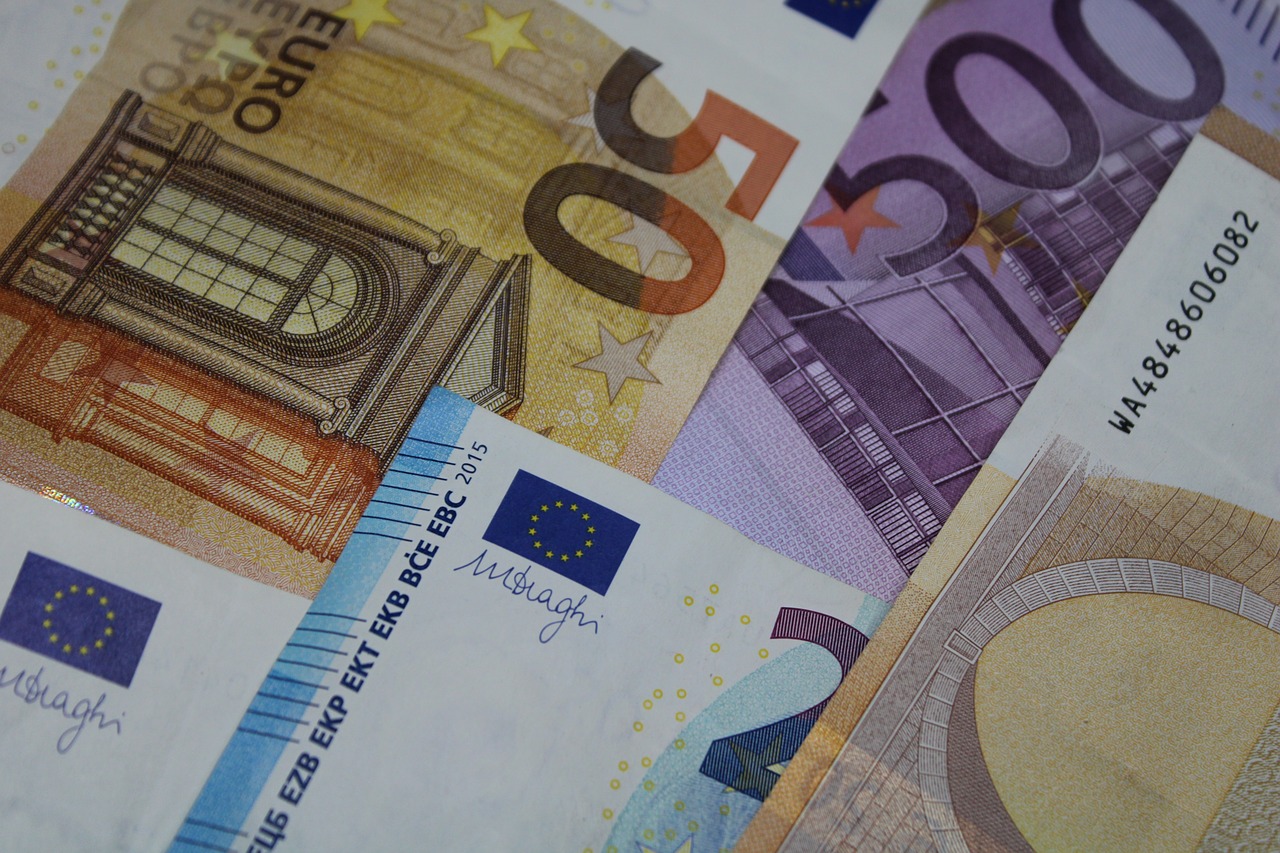Unraveling the Mysteries of the Brazilian Real: Risks, Customs, and Currency Fluctuations
GPT_Global - 2024-03-21 09:30:10.0 579
Are there any risks associated with investing in the Brazilian real?
The Brazilian real is the official currency of Brazil and has become an increasingly popular investment choice for foreigners. However, as with any investment, there are potential risks that should be considered before making the decision to invest in the Brazilian real. One risk associated with investing in the Brazilian real is currency exchange rate fluctuations. The value of the real can be affected by various economic and political factors, leading to sudden and unpredictable changes in its value. This can result in losses for investors who buy or sell the currency at the wrong time. Another risk is inflation. Brazil has historically struggled with high levels of inflation, which can significantly impact the value of the real. If inflation rates rise, the real could lose its purchasing power and cause investors to lose money. Additionally, the Brazilian economy is heavily reliant on exports, particularly in commodities such as oil and agricultural products. Any shifts in global demand for these goods can have a significant impact on the value of the currency. Political stability is also an important consideration when investing in the Brazilian real. In recent years, Brazil has faced political turmoil and corruption scandals, which can significantly affect the stability of the currency and the country's economy. Lastly, exchange control policies in Brazil may restrict repatriation of funds, making it difficult for investors to transfer their profits back to their home country. In conclusion, while investing in the Brazilian real can offer opportunities for potentially high returns, it is not without its risks. It is essential for investors to thoroughly research and understand these risks before making any investment decisions.
What is the process for withdrawing money from ATMs in Brazil?
Brazil has a well-established network of ATMs that allow users to withdraw money from their bank accounts. The process of withdrawing money from an ATM in Brazil is quite similar to other countries, with a few necessary steps. First, locate an ATM that is compatible with your bank. This information can usually be found on your bank's website or by contacting them directly.
Once you have found an ATM that is compatible with your bank, insert your debit or credit card into the machine. You will then be prompted to enter your PIN number, which is typically a four-digit code. Make sure to shield the keypad when entering your PIN for security purposes. Your PIN needs to match the one registered with your bank.
After entering your PIN, you will be asked to select the amount of money you wish to withdraw. Most ATMs in Brazil only allow withdrawals in multiples of R$20, with a maximum daily limit of R$500. Keep in mind that there may also be a fee associated with the transaction, depending on your bank's policies.
Once you have selected the amount, the ATM will dispense the requested cash. It's important to retrieve your card before taking the cash, as the ATM will typically return the card first. After receiving your money, remember to take your receipt and any remaining cash and exit the ATM area.
It's essential to keep your ATM transactions safe and secure. Be aware of your surroundings, and if possible, use an ATM located inside a bank or other secure location. If you encounter any issues during your transaction, such as the machine not dispensing cash, contact your bank immediately.
In conclusion, withdrawing money from ATMs in Brazil is a straightforward process that requires finding a compatible ATM, entering your PIN, selecting the desired amount, and retrieving your cash. Always prioritize safety and security when using ATMs, and don't forget to keep your card and PIN information safe.
Are there any cultural customs related to the use of money in Brazil?
Brazil, like many other countries, has its own unique cultural customs when it comes to the use of money. These customs play a significant role in people's daily lives and can also have an impact on the remittance business in the country.
One common cultural custom in Brazil is the concept of "gifting" or giving money as a form of gratitude or appreciation. This can range from small gestures, such as tipping service workers, to larger gifts for special occasions, such as birthdays or weddings. In some cases, this can also extend to giving financial support to friends or family members in need.
In addition, the Brazilian culture places value on relationships and community. As a result, people often share their wealth with loved ones and contribute to the overall welfare of their community through financial donations or support. This can impact the remittance business as people may send money back to their home country to help support their families or contribute to community projects.
The use of cash is also prevalent in Brazil, especially in smaller towns and rural areas. While credit and debit cards are becoming more popular in urban areas, cash is still the preferred method of payment in many regions. This means that individuals may rely on remittance services to physically transfer money to their loved ones who live in areas where cash is the main form of currency.
Another important aspect of Brazilian culture when it comes to money is the concept of "pagar um mico," which translates to "paying for the monkey." This means someone is expected to pay for a group expense, such as a dinner or outing, but in return, they gain the respect and admiration of their peers. This cultural custom encourages generosity and can also lead to increased demand for remittance services as individuals may need to send money to cover their share of expenses.
In conclusion, understanding the cultural customs related to the use of money in Brazil can provide valuable insights for those in the remittance business. These customs demonstrate the importance of relationships, community, and generosity in Brazilian culture, all of which can have an impact on the demand for remittance services.
How has the value of the Brazilian real changed over time?
The Fluctuating Value of the Brazilian Real: An Overview
The Brazilian real, the official currency of Brazil, has gone through significant changes in its value over time. As one of the most traded currencies in the world, it plays a crucial role in the country's economy and has a great impact on remittance businesses.
Since its inception in 1994, the Brazilian real has experienced various fluctuations. In its early years, it was pegged to the US dollar at a fixed rate, which provided stability but limited the country's ability to adjust its monetary policies. This changed in 1999 when Brazil adopted a floating exchange rate system, allowing the real to be determined by market forces.
Over the next two decades, the value of the real has been impacted by several economic and political events. In 2002, Brazil faced economic turmoil, and the real saw a significant devaluation against the US dollar. This was followed by a period of growth and stability, with the real reaching its peak in 2011.
However, in recent years, the Brazilian real has faced challenges due to a sluggish economy, rising inflation, and political uncertainty. This has led to a decline in its value, making it more expensive for people sending remittances to their families in Brazil.
Despite these challenges, the Brazilian real remains an important currency for remittance businesses. With millions of Brazilians living abroad and sending money back home, the demand for exchanging currencies remains high. Keeping track of the real's value is crucial for remittance businesses to provide competitive rates and services to their customers.
In conclusion, the Brazilian real has had a turbulent history, and its value continues to fluctuate. As a remittance business, staying updated on its value is essential to better serve your customers and navigate the ever-changing currency market.
What are some popular souvenirs that can be purchased with Brazilian real?
When travelling to Brazil, it is always nice to bring back a souvenir to remember your trip. But with so many options available, it can be overwhelming to decide what to buy. To make things easier, here are some popular souvenirs that you can purchase using Brazilian real.
One of the most iconic souvenirs from Brazil is the Havaianas flip-flops. These colorful and comfortable sandals are perfect for the warm weather and can be found in almost every local market or souvenir shop. They also make for a great gift for friends and family back home.
For those who love coffee, Brazil is the largest producer and exporter of this beloved beverage. You can find high-quality coffee beans, ground coffee, and even coffee-flavored chocolates in Brazil. Be sure to buy from a reputable seller to ensure the best quality.
Another popular souvenir is the cachaça, a Brazilian alcoholic drink made from sugarcane. It is often used to make the famous caipirinha cocktail. You can find a variety of cachaça brands in Brazil, each with its unique flavor.
If you're looking for something more traditional, consider buying a piece of handcrafted art from a local artisan. Brazilian handicrafts are known for their vibrant colors and intricate designs, making them a beautiful addition to any home.
Lastly, you can't go wrong with a piece of jewelry made from Brazilian gemstones such as amethyst, topaz, and emerald. These stones are abundant in Brazil and are often crafted into stunning pieces of jewelry that make for a valuable and meaningful souvenir.
With these popular souvenirs, you can bring a piece of Brazil back home with you. And with the convenience of remittance services, you can easily purchase these souvenirs using Brazilian real and send them to your loved ones as a reminder of your amazing trip.
What impact do currency fluctuations have on Brazil's economy?
Currency Fluctuations and Brazil's Economy Currency fluctuations can have a significant impact on Brazil's economy, as seen in recent years. Brazil's economy is heavily reliant on its exports, particularly commodities such as soybeans, iron ore, and oil. Therefore, any changes in the exchange rate can greatly influence the country's economic performance. When a country's currency weakens in relation to other currencies, it becomes cheaper to buy goods and services from that country. This can stimulate demand for Brazilian exports and boost the country's GDP growth. On the other hand, a stronger currency can make exports more expensive, leading to a decrease in demand and negatively affecting the economy. In Brazil's case, its currency, the real, has been experiencing volatility due to various factors such as political instability, economic uncertainty, and external shocks. For example, in 2015, the value of the real dropped by almost 50% against the US dollar, causing a decrease in export revenues and contributing to a recession in the country. Another effect of currency fluctuations is on remittances, which are the money transfers made by individuals working abroad to their families in Brazil. When the value of the real decreases, remittances become more valuable, providing a boost to the country's foreign currency reserves. However, when the currency strengthens, remittances become less valuable, which can affect the purchasing power of families back home. To mitigate the impact of currency fluctuations on the economy, the Brazilian government has implemented measures such as setting up currency swap lines with other countries and intervening in the foreign exchange market. Additionally, businesses and individuals can also use hedging strategies to protect themselves against currency risks. In conclusion, currency fluctuations have a significant impact on Brazil's economy, affecting its exports, remittances, and overall economic performance. With proper measures in place, the country can better navigate these fluctuations and promote a stable and thriving economy.Is Brazil's currency widely accepted in other countries?
When it comes to remittance businesses, Brazil's currency may not be the first currency that comes to mind. However, the truth is that Brazil's currency, the Brazilian real, is widely accepted in various other countries around the world. This has been a great advantage for those who need to send money back home or to loved ones living in this South American nation.
The Brazilian real is the official currency of Brazil and is represented by the symbol "R$". It is accepted in several countries throughout South America, including Argentina, Uruguay, Paraguay, and Bolivia. This is due to the fact that these countries are all part of the Mercosur trade bloc, which allows for easier trade and financial transactions between member countries.
Outside of South America, the Brazilian real is also accepted in countries such as Portugal and Macau, both of which have historical ties with Brazil. Additionally, it is accepted in some Caribbean islands that have strong tourism ties with Brazil, such as Aruba and the Dominican Republic.
One of the main reasons for the wide acceptance of the Brazilian real is its stability and strength in the global market. It is considered one of the most stable currencies in Latin America and is also one of the most traded currencies in the world. This makes it a reliable currency for remittances, as recipients can easily convert it into their local currency without facing major fluctuations or risks.
Moreover, Brazil has a large immigrant community living abroad, especially in countries like the United States, Japan, and Portugal. This has also contributed to the widespread acceptance of the Brazilian real, as these immigrants often rely on remittances to support their families back home.
In conclusion, while Brazil may not be the first country that comes to mind when thinking about remittance businesses, its currency is undoubtedly widely accepted in various countries around the world. Its stability and strength in the global market, along with its large immigrant population living abroad, make the Brazilian real a reliable and convenient currency for international transactions.
About Panda Remit
Panda Remit is committed to providing global users with more convenient, safe, reliable, and affordable online cross-border remittance services。
International remittance services from more than 30 countries/regions around the world are now available: including Japan, Hong Kong, Europe, the United States, Australia, and other markets, and are recognized and trusted by millions of users around the world.
Visit Panda Remit Official Website or Download PandaRemit App, to learn more about remittance info.


